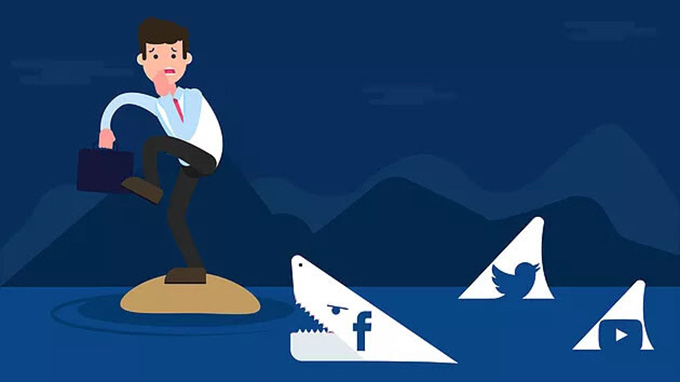I’m sure you all know that things operate differently depending on factors such as culture and location. We all walk a different path in life, that’s what makes us distinctive individuals. The meaning of love and the way you express it may be perceived with disapproval or repugnance by others. All of these ideas tie into good manners, which can be applied into more than just love scenarios. You want to be viewed as a good citizen who is well-informed and educated; otherwise, people will think negatively of you and believe that you weren’t properly taught. This topic of dating etiquette is also analogous to love languages, since we exhibit affection and delineate love in different ways. Another important concept that should be enumerated is interracial dating—a controversial one indeed as it is looked down upon by those not condoning of it. When there is a romantic relationship between two people stemming from contrasting cultures, they are essentially embodying each other’s culture, customs, and family history. We’re in the year 2021 and interracial dating is not abnormal. In fact, it’s becoming more generalized especially here in the United States. The Pew Research Center found that the percentage of interracial couples living together increased from 7.4 in 2000 to 10.2 around 2016.
When witnessing how various cultures interpret love, we may initially think to ourselves “oh that’s weird” or “how is this even romantic?” The irony is that people from different backgrounds may find our own love expressions preposterous, or even disgusting. What I’m trying to say is that we all think similarly because we’re just not accustomed to foreign dating customs and our values don’t line up with theirs, and at the end of the day it’s a new experience for everyone. I can even speak from personal experience; my parents met in China and have been married for over two decades. You would believe that their marriage is healthy, right? Truth be told, I don’t see a connection or a romantic interest in either one of them. I also find it funny and peculiar that I’ve never even seen them do anything intimate like giving a quick kiss. I don’t know if people in China are embarrassed about love or they get married just for the sake of it; as a matter of fact, I can’t recall any memories of my family members demonstrating any romantic attraction, and the discussion of sex is considered taboo. Keep in mind that love is subjective and it doesn’t have to meet another person’s standards—just do what’s right for your own relationship. Who cares what the next person thinks, his or her opinion shouldn’t affect you much. Human beings are judgmental, let them make comments. You should be proud of your rendition of love.

Here is a list of countries and their respective dating protocols that I compiled that may leave you astounded.
Japan:
- Although sex is not necessarily shown as taboo, public affection is not permitted.
- First dates typically occur in a group meeting (goukon).
- If you become the Bachelor or get stuck on a group date then I recommend kicking off the date with sweets! You can use Campus Clipper coupons like the one below for some enjoyable cookies and cupcakes. Click here to view the coupon and make sure to go to the Campus Clipper website for more savings.
- PDA isn’t taken lightly, negatively viewed – the most you would get after a romantic date is probably a stiff hug.
- Shy away from direct feelings & expressions, much prefer subtle signs.

France:
- Like Japan, most first dates take place in a group setting.
- Going on dates or seeing someone and displaying affection typically indicates that you’re committed to someone.
- More romance in dating.
- A good deal of PDA.
- Serious eye contact.
India:
- Casual dating isn’t well received.
- End goal is marriage.
- There is a notion that women have to always be pursued and pampered.
- Arranged marriages still exist but take form online through dating apps, rather than the traditional way. There are apps available for Indians parents to match their children to anyone they find compatible with.
China:
- Actual dating schools exist for men due to the gender imbalance in China (because of the one child per family policy).
- It is fine to call and text frequently, even if the relationship just started.
- The Chinese take marriage quite solemnly, there’s a pressure of getting married; once you reach your 30s and you’re still single then you’re classified as a “leftover.”
- Strays away from verbal affection due to various reasons like awkwardness and cultural traditions.
By: Alex Huang
Alex is a student at the Fashion Institute of Technology majoring in Advertising & Marketing Communications. He used to major in psychology because he didn’t know what to do with his life and now wants to be in the business world. He gets distracted easily by all of the pretty girls in New York City and hopes to become a PR or Marketing manager someday. One of his favorite things to do is going out for bubble tea.
For over 20 years, the Campus Clipper has been offering awesome student discounts in NYC, from the East Side to Greenwich Village. Along with inspiration, the company offers students a special coupon booklet and the Official Student Guide, which encourages them to discover new places in the city and save money on food, clothing, and services.
At the Campus Clipper, not only do we help our interns learn new skills, make money, and create wonderful e-books, we give them a platform to teach others. Check our website for more student savings and watch our YouTube video showing off some of New York City’s finest students during the Welcome Week of 2015.









